Atypical Parkinsonism Podcast Series
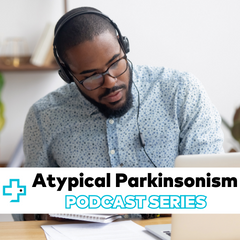 There is a general lack of awareness of progressive supranuclear palsy (PSP), corticobasal degeneration (CBD) and multiple system atrophy (MSA) among many healthcare professionals and the general public. A long road to an accurate clinical diagnosis and access to care creates extra confusion and burden for patients and families with one of these “atypical Parkinsonian syndromes,” especially as they navigate quickly progressing and complex symptoms.
There is a general lack of awareness of progressive supranuclear palsy (PSP), corticobasal degeneration (CBD) and multiple system atrophy (MSA) among many healthcare professionals and the general public. A long road to an accurate clinical diagnosis and access to care creates extra confusion and burden for patients and families with one of these “atypical Parkinsonian syndromes,” especially as they navigate quickly progressing and complex symptoms.
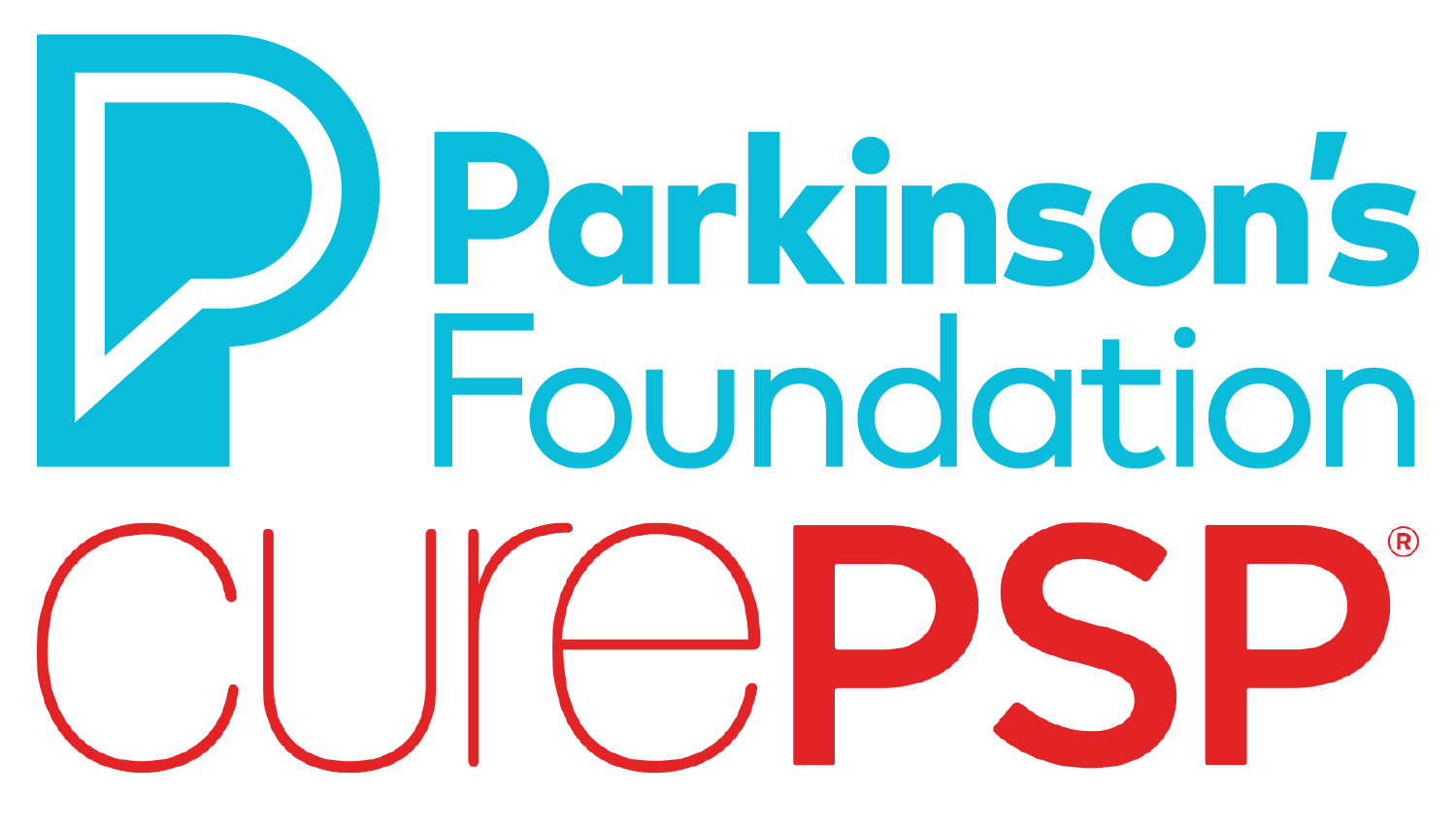 Created in partnership with CurePSP, this three-part Atypical Parkinsonism Podcast Series will cover: a high-level overview of distinctions between PSP, CBD and MSA and Parkinson’s disease; an interprofessional approach to symptom management; and common challenges and needs associated with atypical Parkinsonism. Learners will hear from specialists and a PSP care partner who share their perspectives on the care for these rare diseases.
Created in partnership with CurePSP, this three-part Atypical Parkinsonism Podcast Series will cover: a high-level overview of distinctions between PSP, CBD and MSA and Parkinson’s disease; an interprofessional approach to symptom management; and common challenges and needs associated with atypical Parkinsonism. Learners will hear from specialists and a PSP care partner who share their perspectives on the care for these rare diseases.
Syllabus | |
Atypical Parkinsonism Series: Overview, Diagnosis and Prevalence Atypical Parkinsonism Series: Treatment and Interdisciplinary Approach to Care Atypical Parkinsonism Series: Unique Care Needs of PSP, CBD and MSA and Helpful Resources Knowledge Check Evaluation Credit Certificate | |
Target Audience
This activity is designed to meet the educational needs of:
- Physicians
- Physician Assistants
- Nurses
- Social Workers
- Psychologists
- Physical Therapists
- Occupational Therapists
Learning Objectives
At the end of this activity, learners will be able to:
- Identify common early symptoms of progressive supranuclear palsy (PSP), corticobasal degeneration (CBD), and multiple system atrophy (MSA), and explain the overlaps and differences between the diagnostic process and typical disease progression of the atypical Parkinsonian syndromes and Parkinson’s disease.
- Apply interprofessional approaches to symptom management for PSP, CBD and MSA and incorporate the healthcare team in assessing needs and crafting a plan of care for patients with these diseases.
- Recognize the unique challenges of people living with PSP, CBD or MSA and be able to name helpful resources that support the quality of life of patients and family care partners.
Parkinson’s Foundation adheres to the ACCME’s Standards for Integrity and Independence in Accredited Continuing Education. Any individuals in a position to control the content of a CE activity, including faculty, planners, reviewers, or others are required to disclose all relevant financial relationships with ineligible entities (commercial interests). All relevant conflicts of interest have been mitigated prior to the commencement of the activity.
Moderator
- Dan Keller, PhD: has no relevant financial relationships to disclose
Faculty Member(s)
- Heather Cianci, PT, MS, GCS: has no relevant financial relationships to disclose
- Nancy Montgomery (Care Partner): has no relevant financial relationships to disclose
- Alexander Pantelyat, MD, FAAN: has disclosed that he is on the Scientific Advisory Board for MedRhythms Inc. and a Consultant for Ferrer Internacional, S.A. and SciNeuro Pharmaceutics.
- Jessica Shurer, MSW, LCSW: has no relevant financial relationships to disclose
- Julia Wood, MOT, OTR/L: has no relevant financial relationships to disclose
Content Validator(s)
- Elaine Book, MSW, RSW: has no relevant financial relationships to disclose
- Nina Browner, MD: has no relevant financial relationships to disclose
- Lucille Carriere, PhD: has no relevant financial relationships to disclose
- Annie Coy, RN, BSN: has no relevant financial relationships to disclose
- Marie Curtis, MA, OTR/L: has no relevant financial relationships to disclose
- Darla Freeman, MA, CCC-SLP: has no relevant financial relationships to disclose
- Robert Hand, PT, DPT: has no relevant financial relationships to disclose
- Meghan Zorn, PA-C Kapust, LICSW: has no relevant financial relationships to disclose
Planning Committee(s)
- Elaine Book MSW, RSW: has no relevant financial relationships to disclose
- Lucille Carriere: has no relevant financial relationships to disclose
- Heather Cianci, PT, MS, GCS: has no relevant financial relationships to disclose
- Julia Wood, MOT, OTR/L: has no relevant financial relationships to disclose
- Darla Freeman, MA, CCC-SLP: has no relevant financial relationships to disclose
- Jennifer Goldman, MD: has disclosed that she has is a Consultant for EIP Pharma and has received Grant/Research Support form Acadia
- Robert Hand, PT, DPT: has no relevant financial relationships to disclose
- Christine Hunter, RN, BSN: has no relevant financial relationships to disclose
- Erika Jacumin PA-C: has no relevant financial relationships to disclose
- Denise Kornegay MSW: has no relevant financial relationships to disclose
- Irene Litvan, MD: has disclosed that she has received Grant/Research Support from Roche, Abbvie, Centogen, EIP-Pharma, Biohaven Pharmaceuticals, Novartis, United Biopharma, SRL, UCB and is on the Scientific Advisory Board of Amydis.
- Joan Miravite, DNP, MSN, RN, FNP-BC: has disclosed that she has is on a speaker’s bureau for Abbott, and is a consultant for Medtronic.
- Nancy Montgomery (Care Partner): has no relevant financial relationships to disclose
- Jessica Shurer, MSW, LCSW: has no relevant financial relationships to disclose
- Julia Wood, MOT, OTR/L: has no relevant financial relationships to disclose
Planner(s)
- Camila Gadala-Maria: has no relevant financial relationships to disclose
- Elizabeth Pollard: has no relevant financial relationships to disclose
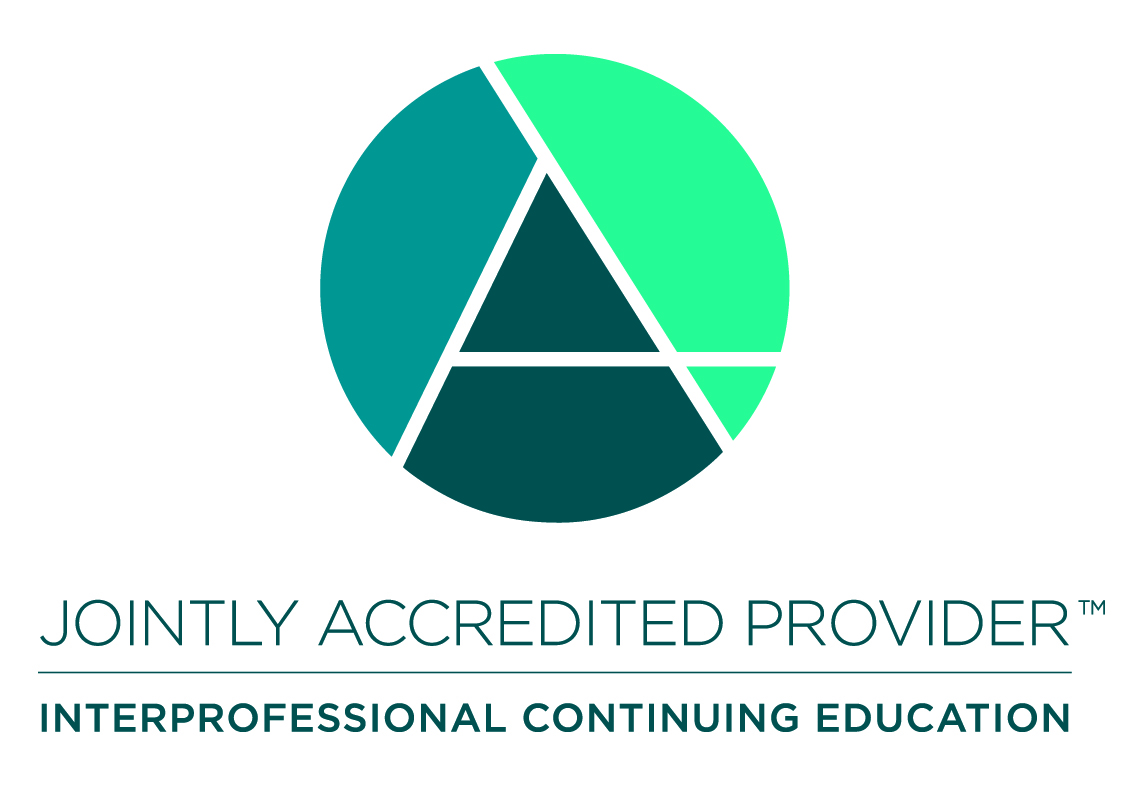 In support of improving patient care, this activity has been planned and implemented by CurePSP and Parkinson’s Foundation. Parkinson’s Foundation is jointly accredited by the Accreditation Council for Continuing Medical Education (ACCME), the Accreditation Council for Pharmacy Education (ACPE), and the American Nurses Credentialing Center (ANCC), to provide continuing education for the healthcare team.
In support of improving patient care, this activity has been planned and implemented by CurePSP and Parkinson’s Foundation. Parkinson’s Foundation is jointly accredited by the Accreditation Council for Continuing Medical Education (ACCME), the Accreditation Council for Pharmacy Education (ACPE), and the American Nurses Credentialing Center (ANCC), to provide continuing education for the healthcare team.

This activity was planned by and for the healthcare team, and learners will receive 1.5 Interprofessional Continuing Education (IPCE) credit for learning and change.
Physicians
Parkinson’s Foundation designates this enduring activity for a maximum of 1.5 AMA PRA Category 1 Credit(s)™. Physicians should claim only the credit commensurate with the extent of their participation in the activity.
Nurses
The Parkinson’s Foundation designates this enduring material for a maximum of 1.5 ANCC contact hours. Nurses should claim only the credit commensurate with the extent of their participation in the activity.
Physician Assistants
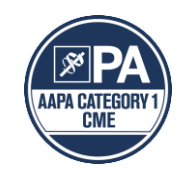
Parkinson’s Foundation has been authorized by the American Academy of PAs (AAPA) to award AAPA Category 1 CME credit for activities planned in accordance with AAPA CME Criteria. This activity is designated for 1.5 AAPA Category 1 CME credits. PAs should only claim credit commensurate with the extent.
Psychologists
 Continuing Education (CE) credits for psychologists are provided through the co-sponsorship of the American Psychological Association (APA) Office of Continuing Education in Psychology (CEP). The APA CEP Office maintains responsibility for the content of the programs. 1.5 CE hours.
Continuing Education (CE) credits for psychologists are provided through the co-sponsorship of the American Psychological Association (APA) Office of Continuing Education in Psychology (CEP). The APA CEP Office maintains responsibility for the content of the programs. 1.5 CE hours.
Social Workers
 As a Jointly Accredited Organization, Parkinson’s Foundation is approved to offer social work continuing education by the Association of Social Work Boards (ASWB) Approved Continuing Education (ACE) program. Organizations, not individual courses, are approved under this program. State and provincial regulatory boards have the final authority to determine whether an individual course may be accepted for continuing education credit. Parkinson’s Foundation maintains responsibility for this course. Social workers completing this course receive 1.5 ASWB credits continuing education credits.
As a Jointly Accredited Organization, Parkinson’s Foundation is approved to offer social work continuing education by the Association of Social Work Boards (ASWB) Approved Continuing Education (ACE) program. Organizations, not individual courses, are approved under this program. State and provincial regulatory boards have the final authority to determine whether an individual course may be accepted for continuing education credit. Parkinson’s Foundation maintains responsibility for this course. Social workers completing this course receive 1.5 ASWB credits continuing education credits.
Physical Therapists
This course has been approved by California Education Connection through the state of California for a maximum of 1.50 Contact Hours.
Approval number: CEC-1065
Occupational Therapist
This course has been approved by California Education Connection through the state of California for a maximum of 1.50 Contact Hours.
Approval number: CEC-1065
Available Credit
- 1.50 AAPA Category I CME
- 1.50 AMA PRA Category 1 Credit™
- 1.50 ANCC
- 1.50 APA
- 1.50 ASWB ACE
- 1.50 IPCE Credit™
- 1.50 Occupational Therapist
- 1.50 Participation
- 1.50 Physical Therapist
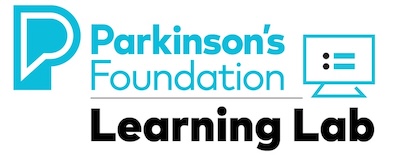
 Facebook
Facebook X
X LinkedIn
LinkedIn Forward
Forward